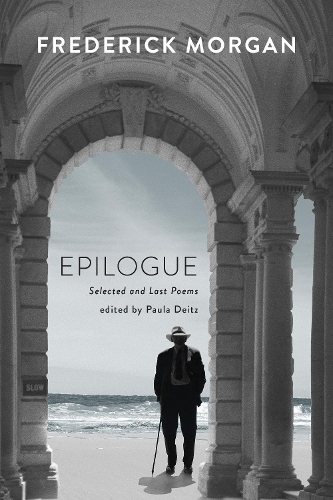
Epilogue: Selected and Last Poems
(Paperback)
Publishing Details
Epilogue: Selected and Last Poems
By (Author) Frederick Morgan
Edited by Paula Deitz
Red Hen Press
Red Hen Press
9th August 2022
United States
Classifications
General
Non Fiction
Modern and contemporary poetry / poems
811.54
Physical Properties
Paperback
406
Width 152mm, Height 228mm
Description
In Epilogue: Selected and Last Poems, Frederick Morgan reworks and amplifies, in his extraordinary poetic range, the fundamental human themes that preoccupied himlove, death, pain, the nature and transcendence of the Self. In interweaving his many themes, he recaptures the past, the confrontation with the external world of nature and the internal world of dream, the oppositions and ambiguities of body and spirit, and the reduplications of meaning in legend and fable. Assembled from eight previous collections, and including his final poems, this profoundly moving book transcends individual expression to provide a powerful insight into universal human experience.
Reviews
"In one of the late poems included in this generous selection of his work, Frederick Morgan refers to 'lifes daily chances.' Every preceding page in the book proves that from first to last, Morgan was fully alive to those chances and able to respond to them in ways that turned vigilance into a form of self-affirmation. In the more reserved formalities of his early work, and the comparative freedoms of his later poems, readers will find a consistently marvelous generosity of spiritone that allows the work to explore personal matters as dexterously as it investigates matters in the wide public world. Epilogue may collect a lifetimes writing, and therefore inevitably contain a good deal of remembering, but one of its many distinctions is to retain a strong appetite for beginningfor seizing on those 'daily chances' and turning them into brightly-seen and durable actualities." Andrew Motion, UK Poet Laureate (19992009)
"Two features tie all the poems in Epilogue together: their limpidity of style and their tireless effort, through memory, dream, story, and fable, to tell the truth. The candid clarity of Morgans voice, consistent through changes of experience and mood, is precisely what enables the poet and his readers to apprehend that truth."Rachel Hadas, author of Poems for Camilla
"This final work not always 'safe for work'reveals a poet still full of life, but a life 'faced as honestly as Morgan faces our morality,' notes David Mason in his insightful introduction. All the while, 'Morgans poetic is that of an ordinary man, albeit a thoughtful and cultivated one, among other things a body in time.'James Panero, executive editor ofThe New Criterion
Author Bio
Frederick Morgan (19222004), a native New Yorker and graduate of Princeton University, served during WWII in the US Armys Tank Destroyer Corps. A founder of The Hudson Review in 1947, he edited it for fifty years, remaining affiliated until his death as Founding Editor. He published eleven books of poems, two collections of prose fables, and two books of translations. In 1984, he was made Chevalier de lOrdre des Arts et des Lettres by the French government. In 2001, he won the Aiken Taylor Award for poetry. Morgan lived in New York City, with summers in Blue Hill, Maine. Paula Deitz joined The Hudson Review in 1967 and succeeded her husband Frederick Morgan as editor in 1998. She is also a cultural critic who writes about art, architecture and landscape design for newspapers and magazines in the United States and abroad. In addition to her book titled Of Gardens: Selected Essays, she edited two Hudson Review anthologies, Writes of Passage: Coming-of-Age Stories and Memoirs from The Hudson Review and Poets Translate Poets: A Hudson Review Anthology. She resides in New York.
